
Hundreds of protesters have gathered in Armenia and Georgia following the announcement by Russian authorities that the Russian opposition leader, Aleksey Navalny, had died in prison.
The Russian Penitentiary Service announced that Navalny, who survived poisoning with the Russian nerve agent Novichok before he was imprisoned in 2021, had died on Friday.
Demonstrations marked by tears and anger were organised by Russians in Tbilisi, Batumi, and Yerevan on Friday evening, just hours after the news broke.
In Yerevan, protesters gathered near the Russian embassy, after police prevented them from approaching the building.

The crowds chanted Navalny’s name, anti-war and anti-Putin slogans, ‘Russia will be free’, and more.
‘I’m angry; I’m mostly angry, then sad’, one demonstrator named Nikolay told OC Media, adding that he was grateful that in Armenia he was able to express his feelings openly.
‘We expected it, but the feelings are still anger, rage, grief’, said another demonstrator, Mikhail Yershov.
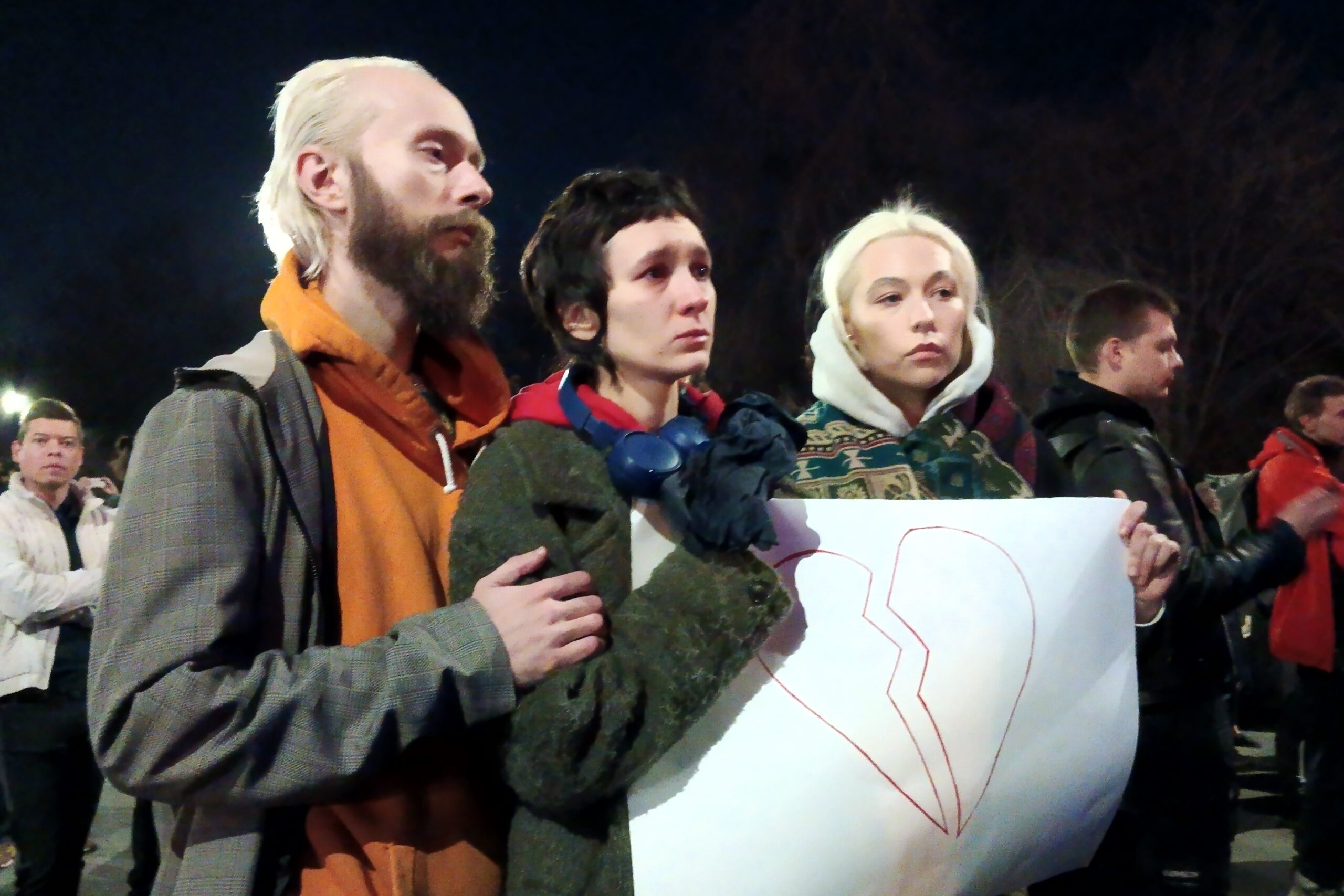
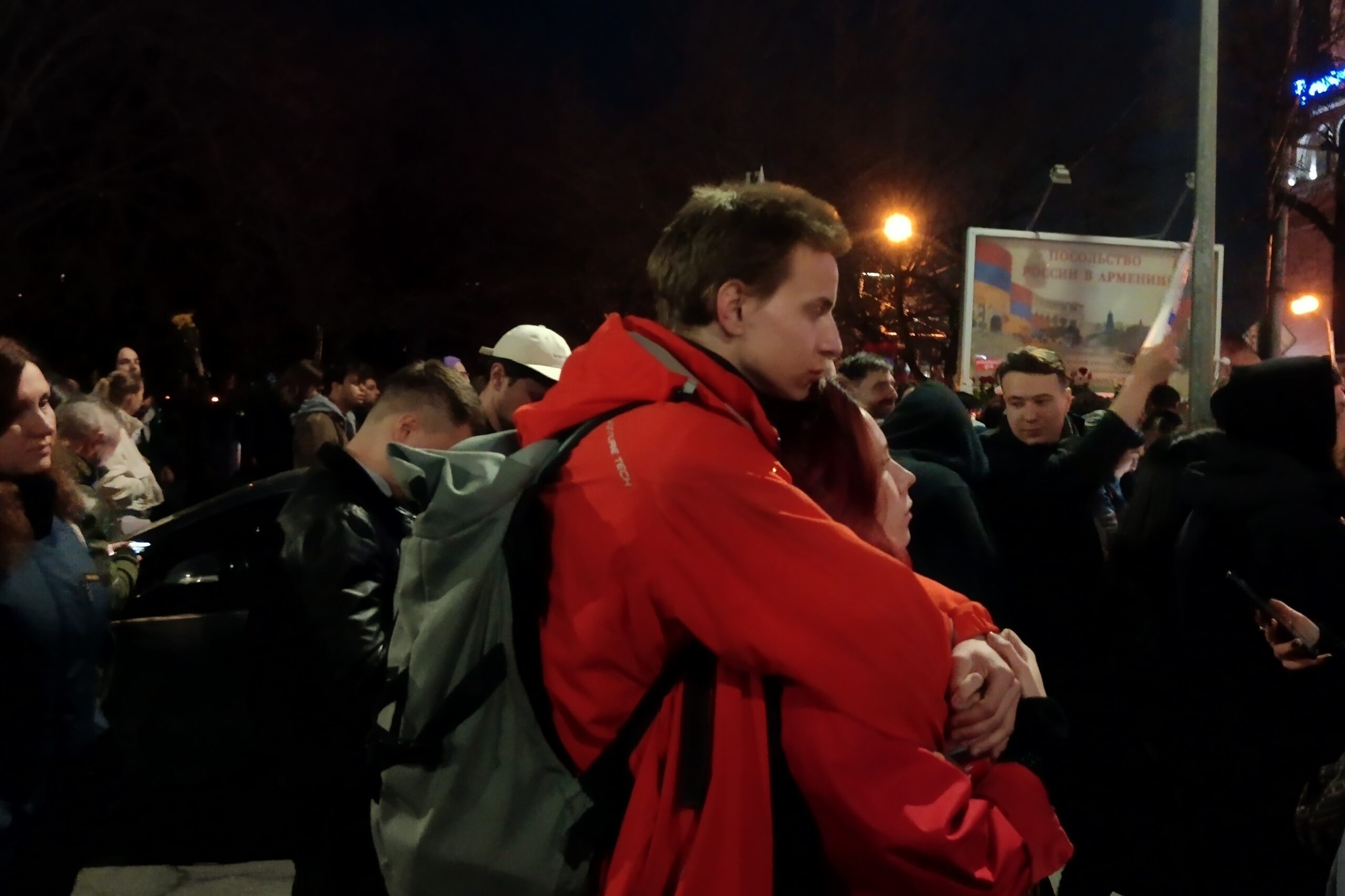
‘We learned today with great sorrow about the terrible news that Navalny was killed in prison’, said another demonstrator, Darina Mayadskaya. ‘We could not stay home, and I think everyone else here realised that they needed to express their condolences and support to each other’, she added. ‘To me, as to many people, this seems like a last desperate step, appearing only in terrifying nightmares.’
In Tbilisi, a demonstration was held outside the Russian Interests Section at the Swiss Embassy. Georgia severed diplomatic relations with Russia after the 2008 August War.
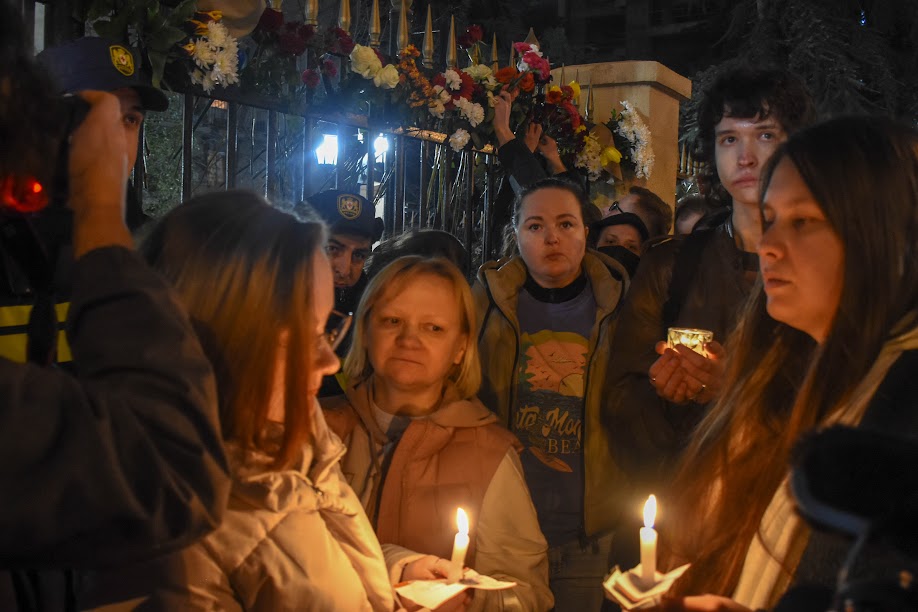
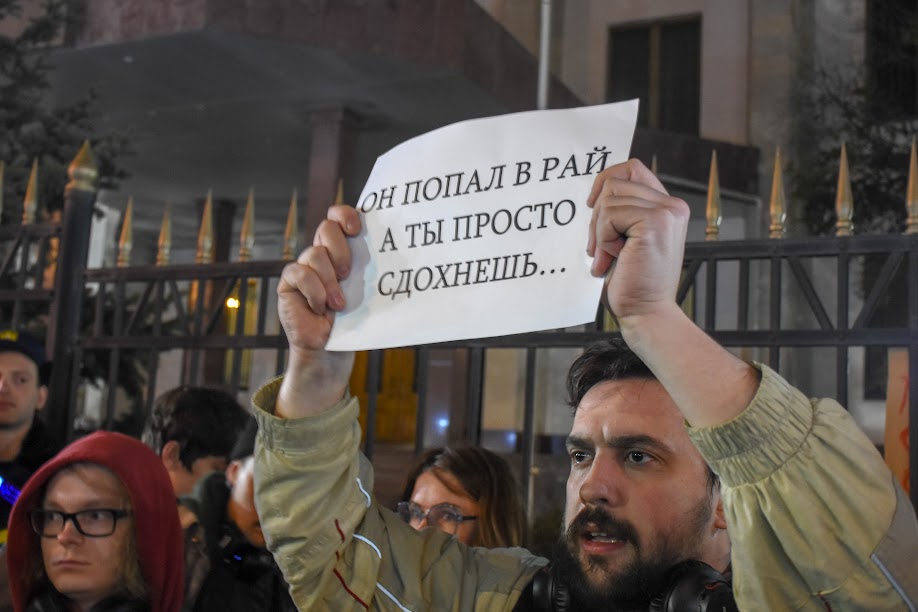
One protester who asked to remain anonymous told OC Media that Navalny’s death came as a shock to her.
‘What brought me [here]? It’s shock, because everything has its limits’, she said. ‘We Russians endure for a very long time, but there is some point of no return’.
She said that she was worried for the fate of other political prisoners in Russia.
‘Navalny felt great just yesterday; on 12 February he met his mother and looked good, joked and so on. This simply means that he was killed, like Boris Nemtsov’, she said.
Boris Nemtsov was a liberal politician and ardent critic of Vladimir Putin who was gunned down in the street near the Kremlin in Moscow in 2015.
Political reactions
Following news of Navalny’s death, Western leaders, including America’s Biden, the EU’s Charles Michel, and Germany’s Scholz, were quick to point the finger at Russian President Vladimir Putin.
Alexei @navalny fought for the values of freedom and democracy. For his ideals, he made the ultimate sacrifice.
The EU holds the Russian regime for sole responsible for this tragic death.
I extend my deepest condolences to his family. And to those who fight for democracy around…
— Charles Michel (@CharlesMichel) February 16, 2024
Despite the growing rift between Armenia and Russia, Armenian authorities have so far remained silent, as have those in Azerbaijan.
In Georgia, President Salome Zurabishvili was quick to speak out, calling Navalny’s death a ‘tragedy for all democracy and human rights defenders’.
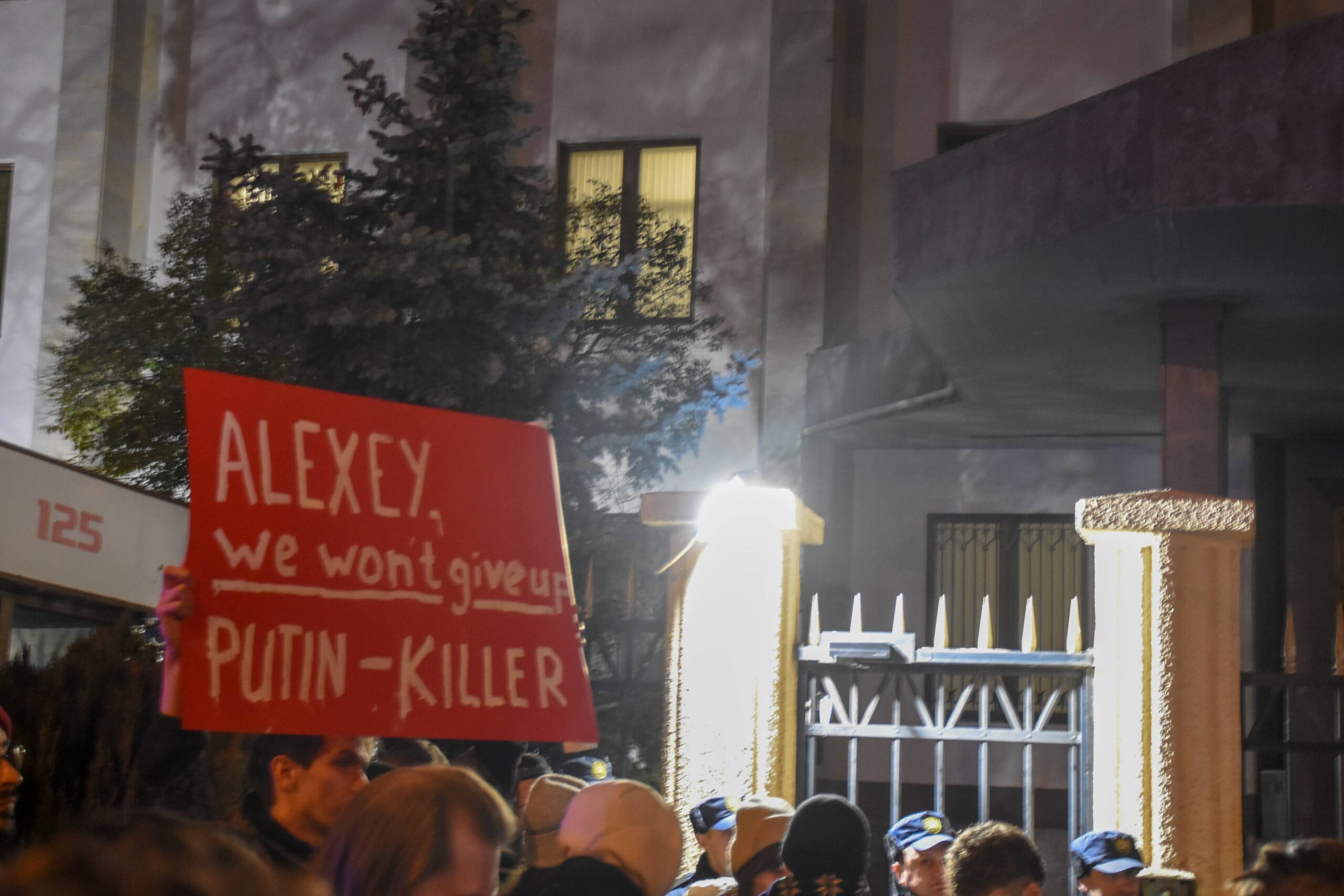

The ruling Georgian Dream party, however, were less explicit. Asked by journalists if Navalny was the latest victim of Putin, Mamuka Mdinaradze, the party’s parliamentary leader, answered that ‘of course’ he was, before going on to speak about Georgia’s opposition.
‘We should not forget that it reminds us, also very unfortunately, of the hundreds of prisoners who died in our prison before 2012’, he said.
Confronted by journalists, the speaker of parliament, Shalva Papuashvili, said only that he ‘cannot have any comments on this issue’.
Opposition leaders in Georgia were more outspoken.
The United National Movement issued a statement praising Navalny for returning ‘to fight against Putin’s dictatorship and murderous regime’ despite the danger to his life. ‘Putin is cowardly eliminating all his political opponents, thus killing any prospects of democracy in Russia’, they wrote.
The party’s founder, former president Mikheil Saakashvili, who is serving a prison sentence for abuse of power, wrote: ‘Navalny is gone. Am I the next one on Putin’s death row?’
‘I often disagreed with him, and Putin often compared us and hated both of us equally’, he added.
The leader of the opposition Droa Party, Elene Khoshtaria, wrote on X that Navalny’s death was a ‘testament to the true, brutal, callous nature of #Russia and #Putin’.
#Navalny’s death is a testament to the true, brutal, callous nature of #Russia and #Putin.
The #Kremlin is a death machine that must be compelled.
Whatever your thoughts about his political positions, Navalny gave his life for what he believed was right.
ARM UKRAINE NOW to…— Helen Khoshtaria (@Helenkhosh) February 16, 2024
Giorgi Gakharia, a former Prime Minister and now leader of the For Georgia party, expressed condolence to Navalny’s family and friends writing that his death in prison was a ‘poignant symbol of #Russia’s enduring modernised #totalitarianism’.
‘It kills, both at home and abroad. It is danger to both human and international security’, he wrote.









